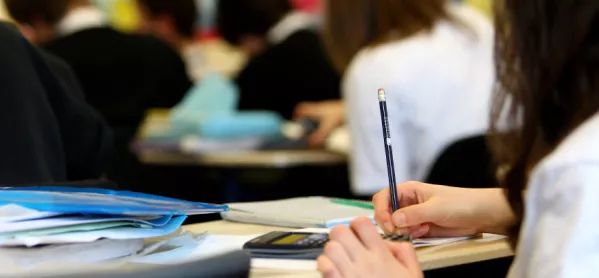The UK and England have seen their performances drop in science, maths and reading, according to the latest results from Pisa released this morning.
But both countries rose up the science rankings in the influential Programme for International Student Assessment and finished above mainland’s China’s entry in reading. Singapore finished top in all three subjects.
Despite the UK’s score in science slipping from 515 to 509, falls in other countries’ results meant it rose six places in the science rankings to 15th.
In maths, the UK slipped one place to 27th compared to the last round of testing in 2012. In reading, it rose one place to 22nd, according to the tests taken by 540,000 15-year-olds in 72 countries last year.
The Pisa scores, compiled by the OECD (Organisation for Economic Co-operation and Development), show that compared to their counterparts in Singapore, 15-year-olds in the UK are about one-and-a-half years behind in science and two years behind in maths.
All individual UK countries saw their scores drop in science compared to 2012. England and Scotland saw maths scores fall, while in Northern Ireland and Wales they rose.
In reading, England recorded the same score, while the other three UK countries all saw lower scores.
High achievers
The top five places in maths, and three of the top five places in science were taken by East Asian countries. Estonia came third in science, sixth in reading and ninth in science. Near neighbour Finland rose to 4th in reading, remained 5th in science, but slipped a place to 13th in maths.
Canada also had a good Pisa climbing to third in reading and 7th in science. The Republic of Ireland climbed from 9th to 5th in reading.
When the UK’s constituent countries are taken separately, they appeared in the same order in the tables in all three subjects: England coming top followed by Northern Ireland, Scotland and Wales.
The four countries are not included in the main rankings of Pisa, but the constituent countries scores are given. In science, pupils in England scored 512, which puts it between Slovenia in 13th place and above Australia which came 14th.
In maths, England scored 493 which is the same score as France which came 26th. And in reading, pupils in England scored 500 which was the same score as Sweden which came 17th and Denmark which came 18th.
The Pisa scores are taken every three years, with the main focus of testing rotated between the three subjects. The main focus in 2015 was science.
The report found that about 7.7 per cent of students across the OECD countries are top performers in science. But 10.9 per cent of UK students are at this level.
“An understanding of science, and of science-based technology, is necessary not only for those whose careers depend on it directly but also for any citizen who wishes to make informed decisions related to the many controversial issues under debate today,” the report states.
Science support
The tables come a week after the UK’s score in the Trends in International Maths and Science Study (Timss), which tests 10 and 14-year-olds, also showed an improvement in science. In Timss, UK 14-year-olds moved up one place in the table to eighth while 10-year-olds remained at 15th place in the table.
The government announced a £12.1m package to support science teaching until 2019 today.
The money will go towards continued professional development for teachers through a network of Science Learning Partnerships - schools will also be supported to encourage more teenagers to take GCSE triple science.
Nick Gibb, school standards minister, said: “Studying science offers a wide range of options following school - whether that’s a career in medicine, engineering or teaching science in the classroom these are the vital skills needed for the future productivity and economic prosperity of this country. This extra funding will further support high quality science teaching in our schools.”
You can read all the latest Pisa news and analysis here.
Want to keep up with the latest education news and opinion? Follow TES on Twitter and like TES on Facebook





